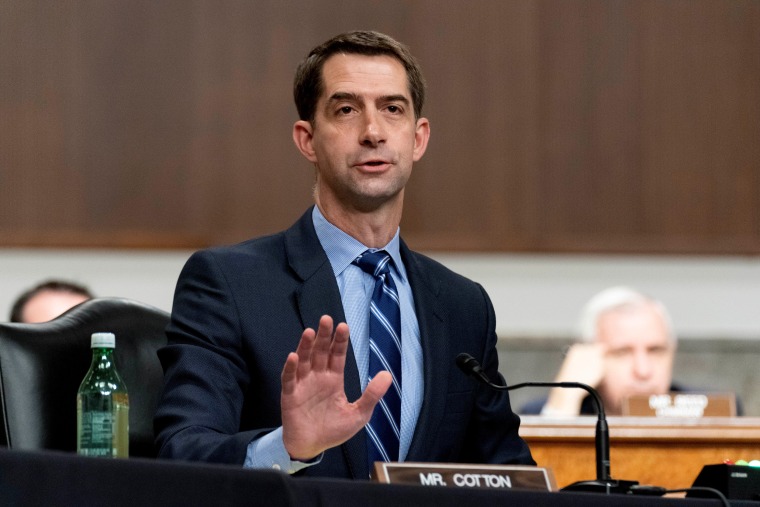Sen. Tom Cotton (R-Ark.) is apparently on the lookout for Chinese communist propaganda, and he finds it with great regularity. Is the New York Times publishing propaganda from Beijing? According to the Arkansas Republican, it certainly is. Are Senate Democrats also helping push propaganda from China? To hear Cotton tell it, they're guilty, too.
This week, the GOP senator saw the imagined problem reach the White House.
Sen. Tom Cotton (R-AR) claimed on Tuesday that advocating for dismantling systemic racism is propaganda in service to the Communist Party of China. On Tuesday afternoon, White House National Security Advisor Jake Sullivan wrote, "On the anniversary of George Floyd's murder, we reflect on the fact that dismantling systemic racism is also a national security priority. The fight for racial justice at home and abroad is foundational to our future [and] to how the world sees us."
At face value, Sullivan's statement did not seem especially controversial. Dismantling systemic racism should be "a national security priority." Fighting for racial justice really is foundational to our international credibility and moral standing.
But Tom Cotton apparently disapproved. "This tweet is approved by the Communist Party of China," the Arkansas Republican tweeted minutes later, in response to the White House national security advisor's brief statement.
It's a difficult sentiment to parse, but I suspect the senator believes a domestic focus on systemic racism paints the United States in an unflattering light, which in turn helps the interests of our detractors abroad, including those in Beijing.
The problem, of course, is that if this is what Cotton was getting at, he has it backwards.
As historian Kevin Kruse explained yesterday, in the not-too-distant past, Presidents Harry Truman, Dwight Eisenhower, and John F. Kennedy each argued that the United States needed to address racial injustices at home, not just to advance a moral cause, but also because "communist powers -- like China -- were highlighting them in their propaganda."
Quite right. The world takes note of our domestic conflicts. George Floyd's murder sparked international protests because much of the world recoiled at images, aired far and wide, of a police officer who kept his knee on a Black man's neck. For countries like China, eager to push the United States aside in the race for 21st-century primacy, racial injustices are evidence against the American experiment.
Our rivals and enemies, in other words, are eager to exploit our racial divisions. It's precisely why Jake Sullivan's point on the anniversary of George Floyd's murder was axiomatically true: the more we address systemic racism, the more it will improve, among other things, our global stature and credibility.
The fact that Tom Cotton derided such a sentiment says far more about him than the White House national security advisor.
